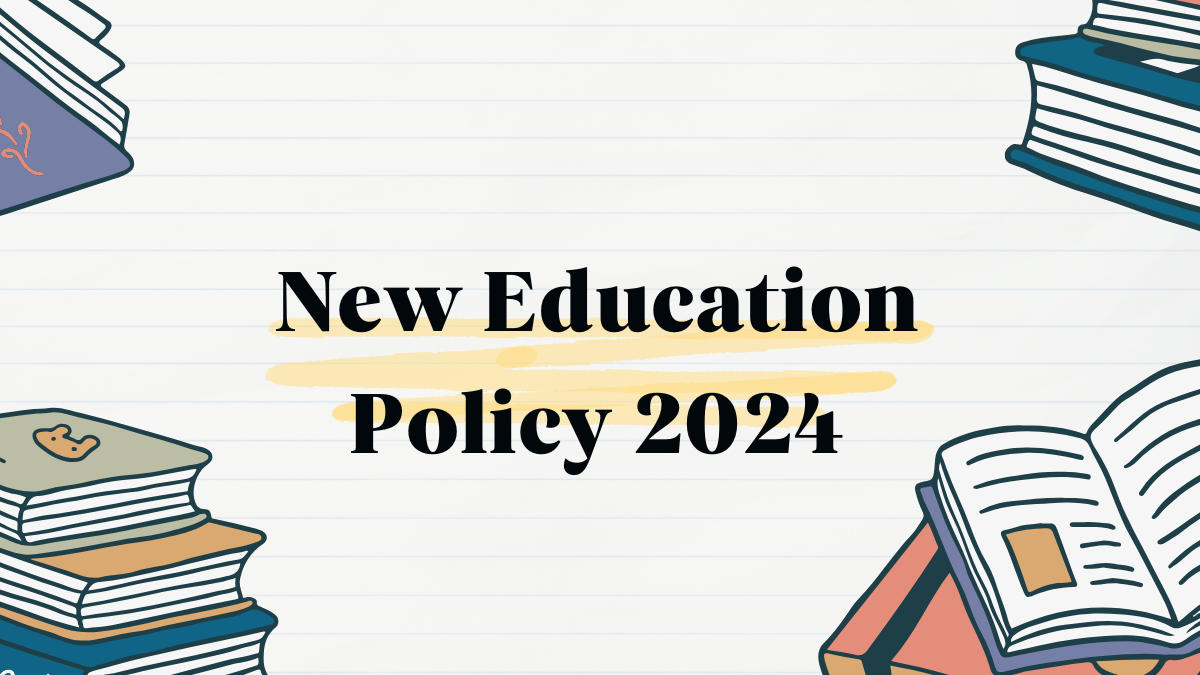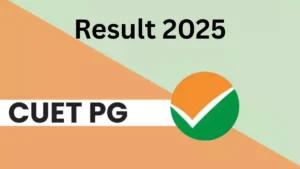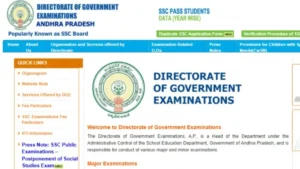Table of Contents
The New Education Policy 2024-25 represents a significant shift in India’s educational environment. The NEP 2024 contains major enhancements aimed at establishing India as a worldwide knowledge superpower by addressing the dynamic needs of the present day with holistic learning, digital literacy, and skill development. Read the complete blog to learn more about the Education Policy, its unique features, and expectations for the Indian education system.
New Education Policy 2024
The New Education Policy 2024-2025 is a revolutionary project aiming at transforming India’s educational landscape. It promises a comprehensive and student-centered approach to learning that emphasizes critical thinking, problem-solving, and creativity.
It replaces the pevious 10+2 system with a new 5+3+3+4 structure, resulting in a more age-appropriate and developmentally aligned curriculrum.
The NEP emphasizes the value of basic learning, especially in early childhood education. The New Education Policy is responsible for the development of educational policies in schools and institutions.
What is New NEP 2024?
In simpler language, NEP 2024 is a significant step toward achieving the goals of the new educational strategy launched in December 2020. Furthermore, it is a comprehensive agenda that promises a total overhaul of the current educational system.
National Education Policy 2024, is a component of the National Educational Policy 2020 that aims to create a progressive and inclusive education system. It detects the present era’s requirements and learning demands and implements the appropriate improvements. Furthermore, holistic learning, digital literacy, and skill development are important aspects of the policy.
National Education Policy 2024
India’s current educational system had several issues before the new National Education Policy of 2020. The system primarily subjected applicants to cramming, which sometimes overlooked true learning and knowledge acquisition. Furthermore, the state’s engagement in education resulted in the formation of multiple education boards, which caused teaching techniques and test patterns to differ. Furthermore, conventional academic themes were prioritized over the development of occupational competencies. In this regard, officials from the new education strategy want to address these weaknesses extensively. It tries to alter this approach by improving topic understanding and reducing rushing.
Why New Education Policy Created?
The idea for the New National Education Policy (NEP) 2024 arose from led by a team of distinguished stakeholders chaired by K Kasturirangan, former Chairman of ISRO. During the panel discussion, panelists offered an overview of the difficulties and improvements needed at each stage of the Indian education system, from basic school to tertiary education and lifetime learning. This panel’s conclusions were a comprehensive harmonization of a lot of viewpoints and ideas gathered through debates and consultations. The Ministry of Education then thoroughly reviewed and analyzed these ideas, resulting in their adoption.
CBSE New Education Policy 2024-25 Academic Structure
The Indian education system 2024-25 has traditionally used the 10+2 system, with a strong emphasis on the board exam. Traditional education features an exam-centric structure, textbook-oriented teaching, and passive learning. As a result, renovating the academic framework is one of the initial phases in establishing the 5+3+3+4 Education System. The stages can be defined as follows –
Stage 1: Foundation Building
This is the first stage, lasting five years, during which schools will support effective ECCE (Early Childhood Care and Education). During the final two years of the stage, children will gain core numeracy and literacy abilities through playful and engaging learning activities.
Stage 2: Preparatory Phase
Teachers will use innovative educational tactics in this stage, which comprises the third, fourth, and fifth grades. They will explore new topics and learn actively via hands-on activities.
Stage 3: Middle Phase of Learning
This stage comprises the sixth, seventh, and eighth grades, during which pupils will gain mastery of concepts across multiple subjects. Furthermore, teachers will undertake a variety of activities to help pupils develop their thinking skills.
Stage 4: Secondary /Final Stage
This is the final stage of school education, in which students have the opportunity to choose their topics. The integration of vocational education will allow them to study a variety of skills and disciplines at the same time.
CBSE: Impact of New Education Policy
The New Education Policy (NEP) 2020 introduced by the Government of India brings several transformative changes to the Central Board of Secondary Education (CBSE) and other Indian education systems, focusing on a more holistic, flexible, multidisciplinary approach aimed at preparing students for the future. Here are the major impacts of the NEP on CBSE:
1. Restructured Schooling System (5+3+3+4 Model)
The traditional 10+2 system is replaced by a 5+3+3+4 model. This model divides schooling into foundational (ages 3-8), preparatory (ages 8-11), middle (ages 11-14), and secondary (ages 14-18) stages, aligning with cognitive development stages.
CBSE will adapt its curriculum and assessments to this new structure, which aims to provide a more seamless learning journey from preschool through higher secondary.
2. Focus on Foundational Literacy and Numeracy (FLN)
The NEP emphasizes foundational literacy and numeracy, especially for children in grades up to 3. CBSE schools are encouraged to focus on building these fundamental skills early on, which is crucial for future learning.
The policy includes the National Mission on Foundational Literacy and Numeracy to improve literacy and numeracy among younger students.
3. Shift to Competency-Based Learning and Assessments
Instead of rote learning, the NEP promotes competency-based learning, focusing on students’ understanding, critical thinking, and problem-solving abilities.
CBSE is shifting its assessment patterns to include competency-based questions, reducing the weight of high-stakes exams, and using formative assessments to gauge real understanding.
4. Introduction of Multidisciplinary and Flexible Curriculum
NEP allows students to pick subjects across streams, such as a combination of science and humanities, promoting interdisciplinary education.
CBSE is working towards offering students greater flexibility, allowing them to explore subjects based on interests and career goals.
5. Inclusion of Skill Development and Vocational Education
NEP aims to integrate vocational education from an early age. By 2025, at least 50% of learners are expected to receive vocational exposure. CBSE has already begun incorporating vocational subjects to meet this goal.
Emphasis on skills like coding, artificial intelligence, and critical thinking has been introduced into the CBSE curriculum.
6. Reduced Curriculum Content and Increased Focus on Core Concepts
The NEP aims to reduce the load of curriculum content and focus more on core concepts. CBSE has reduced the syllabus for various subjects to align with this shift and enhance the focus on understanding and real-life application of knowledge.
7. Encouraging Regional Languages and Multilingualism
NEP promotes the use of regional languages as the medium of instruction, particularly at the foundational stages. CBSE schools are encouraged to incorporate multilingual education, which can lead to better cognitive development and cultural awareness in students.
8. Integration of Technology and Digital Education
The NEP 2020 places a strong emphasis on the use of technology in education. CBSE is integrating digital tools, online learning resources, and technology-based assessments to enhance accessibility and learning.
Initiatives like the Digital Infrastructure for Knowledge Sharing (DIKSHA) and online courses for teachers are being actively promoted.
9. Assessment Reforms and Reduced Board Exam Stress
Board exams are being restructured to assess core competencies. There is a shift from high-stakes, annual board exams to more frequent, less stressful assessments, possibly with optional board exams for different subjects.
CBSE has introduced changes like a reduction in high-stakes exam emphasis, multiple-choice questions, and project-based assessments.
10. Teacher Training and Professional Development
NEP focuses on continuous teacher training and improving teaching standards. CBSE is supporting various professional development programs for teachers to align with the NEP’s goals, including training in new assessment methods, digital literacy, and competency-based education.
11. Encouragement of Experiential and Project-Based Learning
To foster critical thinking, the NEP encourages experiential learning. CBSE schools are adopting more hands-on and project-based learning, such as through field trips, labs, and real-world problem-solving tasks.
12. Counseling and Mental Health Support
With an emphasis on holistic education, NEP mandates that schools provide guidance counseling and mental health support. CBSE is enhancing its support systems to ensure that students have access to the psychological and emotional resources they need.
Overall Impact
The NEP is set to make the CBSE curriculum more flexible, competency-driven, and aligned with 21st-century skills. With these reforms, CBSE students will have a broader education with more emphasis on conceptual clarity, skill development, and holistic growth, preparing them better for higher education and professional paths.
Features of New NEP 2024
Comprehensive Learning
The NEP 2020 goal for school training emphasizes a holistic approach that includes cognitive, emotional, and psychosocial domains.
ECCE Emphasis
Early Childhood Care and Education is an important focus since it provides a solid foundation for all children.
Regional Language Priority
The NEP permits instruction in regional or home languages through Grade 5, promoting multilingual social justice.
Vocational Training
The Vocational Push policy aims to train at least half of learners for jobs by 2025.
New Academic Structure
The new 5+3+3+4 curriculum architecture aligns with the blended model of learning through exposure and skills, ensuring a fluid learning pipeline.
Online Education
Digital integration refers to the use of technology in platforms like DIKSHA to ensure that every child receives an appropriate education.
Inclusive Education for All
The NEP 2020 prioritizes inclusivity and equity, enabling all children up to 6+2 years by removing social and physical barriers to education.
Learning and Feedback System
It advocates for a shift from summative assessments, which focus on testing and results, to formative assessments, which focus on learning and feedback.
Experimental Teaching by Educators
Teacher training aims to equip teachers with new models and approaches to enable long-term professional learning. The institutes will use an arts-integrated instructional approach that incorporates experiential learning methods. Teachers, for example, can lead poetry, sketching, and painting classes, as well as group plays and drama.
NEP 2020 Education Policy
The National Education Policy (NEP) 2020 is a comprehensive framework introduced by the Government of India, aiming to revamp the Indian education system. It covers primary to higher education with a focus on inclusive and holistic development. Here’s an in-depth look:
Key Features and Structural Changes
Foundational Pillars: The policy is built on four foundational pillars—Access, Equity, Quality, and Accountability—to ensure inclusive and equitable education for all.
5+3+3+4 School Structure:
The existing 10+2 system is replaced by a 5+3+3+4 structure.
Foundational Stage (5 years): Includes three years of pre-primary and two years of Grades 1 and 2, focusing on play-based learning.
Preparatory Stage (3 years): Covers Grades 3-5, emphasizing activity-based learning.
Middle Stage (3 years): Grades 6-8, introducing students to more abstract concepts and interdisciplinary study.
Secondary Stage (4 years): Grades 9-12, focusing on multidisciplinary studies with flexibility in subject choices.
Early Childhood Care and Education (ECCE):
ECCE is given significant importance, with universal access aimed for children aged 3-6.
Establishment of Bal Bhavans, where students can participate in arts, crafts, and sports.
Multilingualism and Mother Tongue:
Emphasis on mother tongue or regional language as the medium of instruction till Grade 5, but ideally till Grade 8.
Encouragement for students to learn three languages, including their regional language.
Focus on Literacy and Numeracy:
NEP 2020 aims to achieve universal foundational literacy and numeracy in primary school by 2025.
Special initiatives and programs are being introduced to support literacy and numeracy at an early age.
Vocational Education and Skill Development:
Integration of vocational education from Grade 6 with internships.
This aims to equip students with practical skills and exposure to different professions.
Holistic and Multidisciplinary Education:
Students in higher grades have the freedom to choose subjects across streams.
Emphasis on arts, humanities, and sports alongside academics, promoting a multidisciplinary approach.
Examinations and Assessments:
Shift from high-stakes exams to regular assessments, focusing on critical thinking and analytical skills.
Board exams will be redesigned to assess core competencies, with an option to take exams twice a year.
Higher Education Reforms:
The aim is to achieve a Gross Enrollment Ratio (GER) of 50% by 2035.
Establishment of a four-year undergraduate degree with exit options at multiple stages (certificate, diploma, or degree).
Introduction of multidisciplinary institutions, phasing out stand-alone technical and professional institutions.
M.Phil. programs will be discontinued, and research opportunities will be promoted at the undergraduate level.
National Testing Agency (NTA):
NTA will conduct a single entrance exam for college admissions, like the SAT in the US, to ease the admission process across the country.
Teacher Training and Professional Development:
Introduction of a four-year integrated B.Ed. degree as the minimum qualification for teachers by 2030.
Teachers will undergo continuous professional development and performance-based assessments.
Digital and Online Learning:
Emphasis on digital education through e-learning platforms like SWAYAM and DIKSHA.
Blended models of learning are encouraged, especially for remote and underserved areas.
National Education Technology Forum (NETF):
A platform to support the use of technology in education, focusing on e-content, teaching aids, and blended learning models.
National Assessment Centre – PARAKH:
Establishment of PARAKH (Performance Assessment, Review, and Analysis of Knowledge for Holistic Development) to set standards and improve the assessment framework across states.
Gender Inclusion Fund:
A fund aimed at providing quality education for girls, transgender, and other marginalized groups.
Goals and Vision
The NEP 2020 envisions transforming India into a knowledge society and economy, with the following goals:
Attain universal quality education.
Develop a more flexible, student-centered education system.
Foster critical thinking, creativity, and ethical values in students.
Improve India’s global standing in educational outcomes and innovation.
Implementation and Challenges
While the NEP 2020 lays out an ambitious vision, implementing these changes on the ground is complex and requires significant investment, infrastructure, and capacity-building efforts across India’s states and educational institutions.
New Education Policy 2024 PDF Download
To download the full NEP 2024 document, you can visit reliable sources like government education portals or trusted educational websites.



 CUET PG Result 2025 Date [Live Update], ...
CUET PG Result 2025 Date [Live Update], ...
 AP 10th Class Result 2025 at bse.ap.gov....
AP 10th Class Result 2025 at bse.ap.gov....
 UP Board 10th Compartment Exam Time Tabl...
UP Board 10th Compartment Exam Time Tabl...










